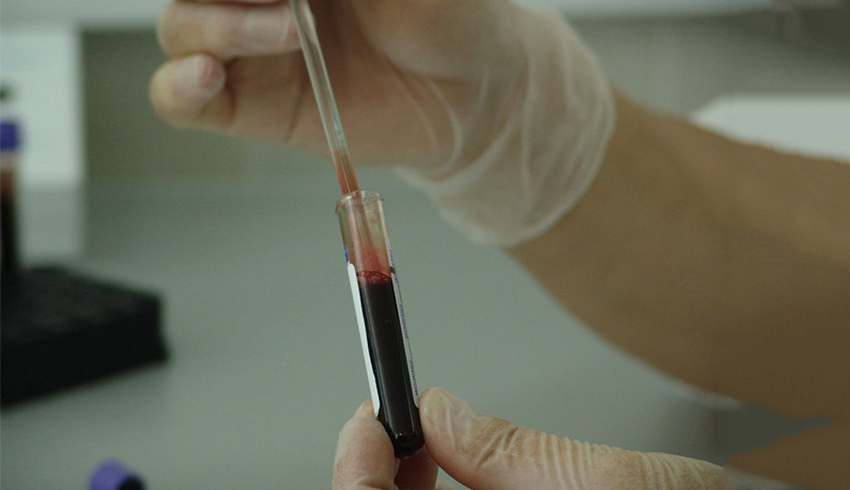Blog
International Prenatal Infection Prevention Month

While February may be better known for Valentine’s Day it is also observed by healthcare organizations as International Prenatal Infection Prevention Month. Raising awareness of prenatal infections is important first and foremost because they are much more prevalent than people might expect. Prenatal infections include bacterial or viral illnesses that can be passed from a mother to her baby during pregnancy or during the delivery process. Prenatal infection prevention is not only essential for the wellbeing of the infant but also equally important for the protection of the mother. February is the month to raise awareness about prenatal infection and to inform people on how to prevent it. Prenatal infection prevention also offers valuable information to mothers about nutrition, regular hygiene habits, and food handling practices.
Many different microorganisms can cause infection in unborn babies, ranging from oral bacteria common in dental plaque to syphilis and those carried even by mosquitoes. These infections include the Zika virus, Listeria, and Group B Streptococcus (GBS), which can cause serious health problems for both mother and child — problems that are often largely preventable. GBS is one example of such infections, caused by bacteria found in the vagina or rectum of 25% of all healthy adult women. Unfortunately, many parents are unaware of the knowledge-based strategies to help protect unborn babies from infection. We want to change that. Prenatal care is the check-ups and screening tests that are important to keep both the mother and the baby healthy during pregnancy. Typically, the routine check-ups occur once each month for weeks 4 through 28, twice a month for weeks 28 through 36 and weekly for weeks 36 to birth. The tests used to check the health of the pregnant women and the baby includes testing for anemia, infections such as syphilis, hepatitis B and HIV. Based on personal and family health, other screenings may also be recommended that detects the risk for possible health problems in the mother and the infant.
Maternal immunization remains an effective and promising mechanism by which to prevent infection which may be transmitted during pregnancy and the newborn/infancy period. Maternal vaccines are an integral component of a healthy pregnancy. It remains an effective way to prevent transmission of certain infections such as hepatitis B and rubella to the infant during pregnancy. However, certain vaccines are not recommended prior to or during pregnancy, therefore women should consult with their healthcare provider to discuss vaccine recommendations prior to pregnancy.
We would like to bring your attention to the important vaccines to be taken during pregnancy.
Before becoming pregnant
it is important for a woman to ensure that she is up-to-date on all vaccines and test disease immunity if necessary. Generally, if vaccines are administered during childhood, protection may be conferred through childbearing years against polio, measles, mumps, rubella, hepatitis B, and possibly varicella. As some vaccines are not recommended to be administered directly prior to or during pregnancy, women should consult with a healthcare provider to discuss adult vaccine recommendations prior to conception.
During pregnancy
women are highly recommended to receive influenza (flu) vaccine regardless of trimester, and the Tdap (tetanus, diphtheria, and pertussis) vaccine is recommended during every pregnancy, preferably during the early part of the third trimester (gestational weeks 27 through 36). Maternal flu vaccination is extremely important, as catching the flu increases the risk of premature labor and delivery. Additionally, since newborn infants are too young to receive the pertussis-containing vaccine, Tdap vaccination during pregnancy will facilitate the transfer of antibodies to the baby before birth.
After pregnancy
postpartum vaccination is still beneficial to the mother and the newborn. The vaccine will protect the mother from acquiring a vaccine-preventable disease and will lessen the baby’s risk of exposure.
As partners in the fight against prenatal infections, we must realize that reducing preventable maternal and newborn morbidity and mortality requires a collaborative effort among healthcare providers at every level. If you’re planning to conceive or you are already pregnant, we would really appreciate if you could follow the following tips and it’s really important to realize this benefit both the mom and child.
- Emphasize routine prenatal screening to evaluate maternal immunity, and increase early diagnosis and treatment of prenatal infections.
- Educate and encourage healthcare providers to make a strong recommendation that women receive the appropriate adult immunizations before conception and the recommended vaccines during pregnancy.
- Share resources and educate women that prenatal infections can be prevented with healthy pregnancy habits such as practicing good hygiene, receiving prenatal care and immunizations, good nutrition, and taking environmental precautions to avoid dangerous infections.
- Utilize immunization information systems to document vaccinations, and use data to inform maternal and child health strategies and program planning.
You can walk into R-CELL Diagnostics and Research center to carry out your Prenatal screening tests. We are glad to stand in this campaign to raise awareness of prenatal infections and to be contributing to the goal of ensuring healthy mothers and infants.









